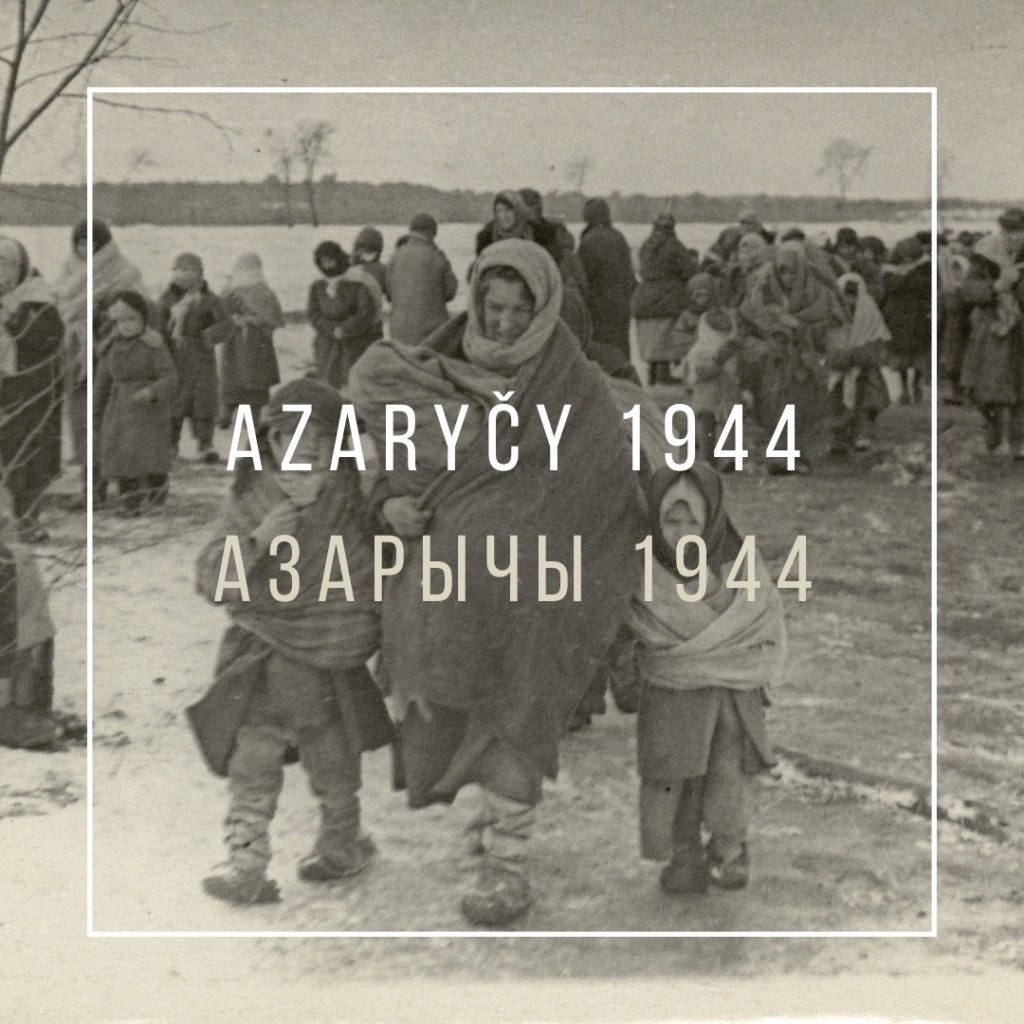Zinaida Petrovna Lemeshkova’s narrative delves into the harrowing experiences her family endured at the Azaryčy concentration camp. She describes the camp’s grim setup, surrounded by barbed wire and watchtowers manned by armed German soldiers. Zinaida Petrovna recounts the scarcity of food, harsh winter conditions, and the emotional toll of witnessing deaths and struggling to survive in the camp.
„Am Anfang 1944 wurden wir auch von diesem Haus ausgesiedelt und in das städtische Dorf Paritschi gebracht, wo ebenfalls mehrere Familien zusammen existierten. Dort haben wir bis Februar 1944 gewohnt, bis wir in das Lager, das sich in der Nähe des Dorfes Dert’ befand, gebracht. In diesem Lager verbrachten wir einige Tage, es gab keine Lebensmittel. Einmal bekamen wir Buchweizen und trockenes Laub für den Tee. Aus dem Lager neben dem Dorf Dert’ wurden wir ins Lager in der Nähe des Dorfes Podosinnik gebracht. Dieses Lager befand sich auf dem Moorgebiet. Es gab keine Bauten und es war mit Stacheldraht und Türmen für die Wächter umgeben. Das war das Lager „Osaritschi“.
Als wir dorthin gebracht wurden, gab es da viele Menschen. Ich erinnere mich, dass ich einmal gesehen habe, wie die deutschen Soldaten auf das Lagerterritorium Brotstücke warfen. Ich wollte essen und beschloss, ein wenig näher zu kommen, um ebenfalls ein Stückchen Brot zu erlangen, das weniger für mich als für meine Mutter, die an Typhus erkrankt war, gedacht war. Aber ich bekam kein Brot. Anstelle des Wassers sammelten wir Schnee, den wir tauten und mit diesem Wasser die Lippen unserer Mutter anfeuchteten. Ich hatte große Angst, dass meine Mama stirbt. Und wenn es keinen Schnee mehr gab, haben wir das Wasser im Moor beschafft und getrunken.“1 (German original)
“At the beginning of 1944, we were also resettled from this house and taken to the urban village of Paryčy, where several families also lived together. We lived there until February 1944, when we were taken to the camp near the village of Dzierć. We spent several days in this camp, there was no food. Once we were given buckwheat and dry leaves for tea. From the camp next to the village of Dzierć we were taken to the camp near the village of Padasinnik. This camp was located on the moorland. There were no buildings and it was surrounded by barbed wire and towers for the guards. This was the “Azaryčy” camp.
When we were taken there, there were a lot of people. I remember once seeing the German soldiers throwing pieces of bread onto the camp territory. I wanted to eat and decided to come a little closer to get a piece of bread too, which was not so much for me as for my mother, who had typhoid fever. But I didn’t get any bread. Instead of water, we collected snow, which we thawed and used to moisten my mother’s lips. I was very afraid that my mother would die. And when there was no more snow, we got the water from the moor and drank it.” (Translation of the German original)
- Berichte von Überlebenden der Lager Osaritschi 2003. ↩︎

